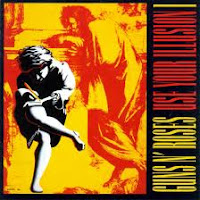 |
| Closed for business - Holborn BK |
The last time I went to Burger King was about six months ago, outside Gloucester Road tube station. I was a little drunk and had a double whopper with bacon and cheese, and onion rings and a coke. I felt somewhat guilty and a little exhilarated and probably a bit self-righteous because I was talking about diets.
That same Burger King ran a marketing gimmick a few years ago where you could order a £95 whopper that was made from rare beef and topped with truffles - an attempt to garner publicity with it's non-core target market of young, working class men. It was dismissed in the media as a poorly conceived marketing stunt masquerading as corporate social responsibility (proceeds were donated to charity).
In the early 2000s, BK, in a bid to differentiate itself from its closest competitor McDonalds after being bought out by a tri-mera of private equity firms including Goldman Sachs Capital Partners, deliberately pumped its burgers full of trans fats, made them bigger and declared war on the calorie-conscious and weak-wristed. It was a foolhardy strategy that failed, and the 2007-08 financial crisis took a further toll on BK as its target market was hit hardest and cut back on whoppers.
 |
| A roaring trade - Holborn McDonalds |
***
 |
| Not a very nice lady |
 |
| I, Smokey, I mean Dopey, swear that nicotine is not addictive |
Warren Buffett's changing attitude towards the investability of tobacco companies is a stark mirror on the social acceptability of tobacco:
'I like the cigarette business. It costs a penny to make. Sell it for a dollar. It's addictive. And there's fantastic brand loyalty.' (1987)
'Investments in tobacco are fraught with questions that relate to societal attitudes and...I would not like to have a significant percentage of my net worth invested in tobacco businesses.' (1994)
But fast food escaped. When I was a kid, a big family day out in West Germany was a trip to the American PX, an hour's drive north to Bremen. It was the equivalent of a trip to the shopping mall, where some of the exotica we could expect to find were hip hop records, Nike Air Jordans and weird toys, topped off with lunch at Burger King. For many people, McDonalds is the ultimate symbol of American consumer culture; but McDonalds was everywhere, even in suburban West Germany, where it compromised on it's golden arches and then-corporate colours of yellow on red so that the conservative town council would allow an outlet to open in picturesque central Celle (there were brown arches on white). For me, Burger King, available only on special occasions at the American barracks, was THE American burger.
 |
| A Food Fighter |
***
For much of the 90s, the narrative about the evils of junk food was confined to marginal publications like the Socialist Worker, handed out on street corners to curious teenagers (like me). I'm not sure exactly when the zeitgeist turned against fast food once and for all, but the milestones that stand out to me are Fast Food Nation and Super Size Me. Who could forget how shocking it was when Morgan Spurlock was told by his doctor that he risked long term liver damage after a month long McDonalds-only diet? Certainly not the McDonalds corporate board, who announced that they would no longer continue to offer the super size option. There the seeds of its business transformation were sown. Today, McDonalds is lauded for its commitment to sustainability and doing its bit, strange as it may seem, to combat obesity.
Burger King, safe behind the golden arches taking a battering on behalf of an entire industry, carried on doing what they do, seemingly oblivious to the changing tide of public opinion. The little Jacksonville, Florida burger chain has changed hands multiple times, each time being sold on because it couldn't provide the return to its new owners that they expected. The closure of the Holborn outlet, strategically positioned by the busstop so drunken office workers could grab a whopper for the bus ride home, is just a tiny chapter in its slow decline.










